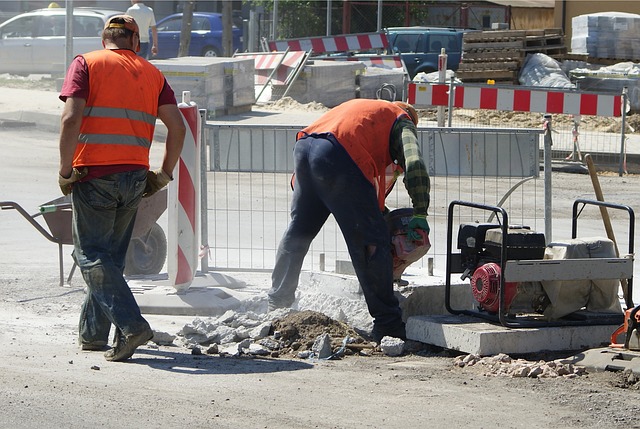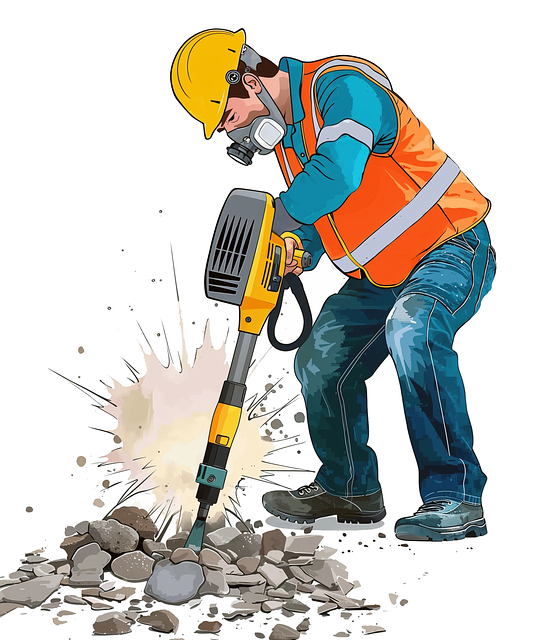In bustling tech hubs Boston and New York, responsible IT asset disposal services tackle e-waste crisis through secure data erasure, strict recycling guidelines, and specialized destruction methods. Adhering to state regulations and data protection laws fosters greener practices, protects sensitive info, and ensures regulatory conformity for sustainable tech management.
“In an era where technology advances at a rapid pace, eco-conscious tech disposal has become paramount. This article explores comprehensive strategies for responsible electronic waste (e-waste) management, focusing on IT asset disposal in Boston and New York. We delve into the environmental implications of e-waste, highlighting sustainable recycling methods, and discuss legal frameworks guiding responsible practices. Additionally, we offer best practices for businesses to minimize their e-waste footprint, fostering a greener tech industry.”
- Understanding Eco-Conscious Tech Disposal Practices
- IT Asset Disposal Services in Boston and New York
- The Environmental Impact of Electronic Waste
- Sustainable Recycling Methods for Electronics
- Legal and Regulatory Frameworks for Responsible Disposal
- Best Practices for Businesses to Reduce E-Waste
Understanding Eco-Conscious Tech Disposal Practices

Eco-conscious tech disposal is more than just recycling; it’s a comprehensive approach to mitigating the environmental impact of outdated IT assets. In cities like Boston and New York, where technology advances rapidly, responsible disposal practices are crucial. Businesses and individuals must consider not only the physical destruction of devices but also data protection and compliance with state regulations, such as NY state e-waste laws.
Proper IT asset disposal involves secure data erasure, according to the Data Protection Act compliance NY guidelines, to prevent sensitive information from falling into the wrong hands. This is particularly important in the case of mass electronic device destruction events, where large quantities of electronics are disposed of simultaneously. By adhering to these eco-conscious practices, Boston and NY can contribute to a greener future while ensuring regulatory compliance.
IT Asset Disposal Services in Boston and New York

In cities like Boston and New York, where technology innovation is a heartbeat of the economy, responsible IT asset disposal services play a vital role in sustainable practices. These metropolitan areas, bustling with tech companies and startups, generate significant volumes of electronic waste (e-waste) each year. To address this growing concern, numerous specialized IT asset disposal companies have emerged, offering eco-conscious solutions for businesses across the region.
Boston and New York both boast e-waste drop-off locations designed to facilitate safe data sanitization methods, ensuring sensitive information is protected before devices are recycled or reused. These services adhere to strict guidelines for old tech disposal, promoting responsible environmental stewardship while providing cost-effective alternatives to conventional waste management practices. By leveraging these specialized IT asset disposal services, businesses can contribute to a greener future while mitigating the environmental impact of their technological advancements.
The Environmental Impact of Electronic Waste

The environmental impact of electronic waste is a growing concern globally, and it’s particularly pronounced in cities like Boston and New York where technology is deeply integrated into daily life. As devices become obsolete faster due to rapid technological advancements, proper disposal of IT assets becomes increasingly vital. Unresponsibly disposed electronics can lead to severe ecological issues, as these devices often contain toxic substances like lead, mercury, and cadmium that can contaminate soil and groundwater if not handled correctly.
In Boston and New York, where a significant portion of the population works in tech or closely related fields, responsible IT asset disposal is more critical than ever. Professional services that offer secure data destruction and recycling of electronics are becoming more prevalent. These recycled electronics suppliers not only ensure that hazardous materials are safely disposed of but also help to extend the life of valuable resources by refurbishing usable components. Furthermore, prioritizing data security in asset disposal is paramount to protect sensitive information from falling into the wrong hands during the recycling process.
Sustainable Recycling Methods for Electronics

In the realm of eco-conscious tech disposal, sustainable recycling methods for electronics play a pivotal role. Companies specializing in IT asset disposal, such as those in Boston and New York City (NYC), employ innovative strategies to reduce electronic waste. One notable approach is the implementation of computer hardware retirement plans that ensure proper disassembly and recycling, minimizing environmental impact.
Moreover, data destruction companies in NYC offer secure end-of-life solutions for electronics, including computers and other devices. These professionals utilize advanced technologies to thoroughly wipe data, preventing sensitive information from falling into the wrong hands. In addition to these services, computer recycling initiatives in NYC are gaining traction, promoting a circular economy where old tech is transformed into valuable resources, reducing the need for virgin materials and minimizing waste.
Legal and Regulatory Frameworks for Responsible Disposal

In many regions, including Boston and New York, the legal and regulatory frameworks for responsible tech disposal are becoming increasingly stringent. These regulations aim to protect both consumers and the environment from the harmful effects of e-waste. Companies involved in IT asset disposal must adhere to strict guidelines regarding data security, proper recycling methods, and environmental impact. Non-compliance can result in significant fines and legal repercussions.
The rise of digital technologies has led to a substantial increase in electronic waste, or e-waste. To address this growing concern, various initiatives promote sustainable practices such as computer hardware retirement plans, IT junk recycling programs, and e-waste drop-off locations across Boston and beyond. These efforts encourage businesses and individuals to dispose of their IT assets responsibly, ensuring that valuable materials are recovered and harmful substances are properly managed.
Best Practices for Businesses to Reduce E-Waste

Businesses play a pivotal role in combating the growing e-waste crisis, particularly in regions like Boston and New York where technological advancements are rapid. To reduce their contribution to e-waste, companies should adopt best practices such as implementing comprehensive IT asset disposal strategies. This includes proper recycling of electronic waste through reputable e-scrap recycling centers in NYC or Massachusetts, ensuring compliance with local regulations for IT equipment disposal in NY.
By partnering with experienced e-waste management specialists in Massachusetts, businesses can efficiently navigate the complex landscape of IT asset disposal. This involves proper classification and segregation of equipment, data destruction to protect sensitive information, and responsible recycling that maximizes resource recovery while minimizing environmental impact. Such proactive measures not only contribute to a sustainable future but also offer economic benefits through potential cost savings on raw materials and reduced legal risks associated with improper IT disposal.
Eco-conscious tech disposal is not just a trend but a necessity. By adopting best practices, such as understanding proper IT asset disposal in Boston and New York, utilizing sustainable recycling methods, adhering to legal frameworks, and implementing reduced e-waste strategies, businesses can significantly mitigate their environmental impact. Every responsible step towards eco-friendly tech disposal contributes to a greener future, ensuring electronic waste doesn’t become an enduring enigma but rather a symphony of positive change.














